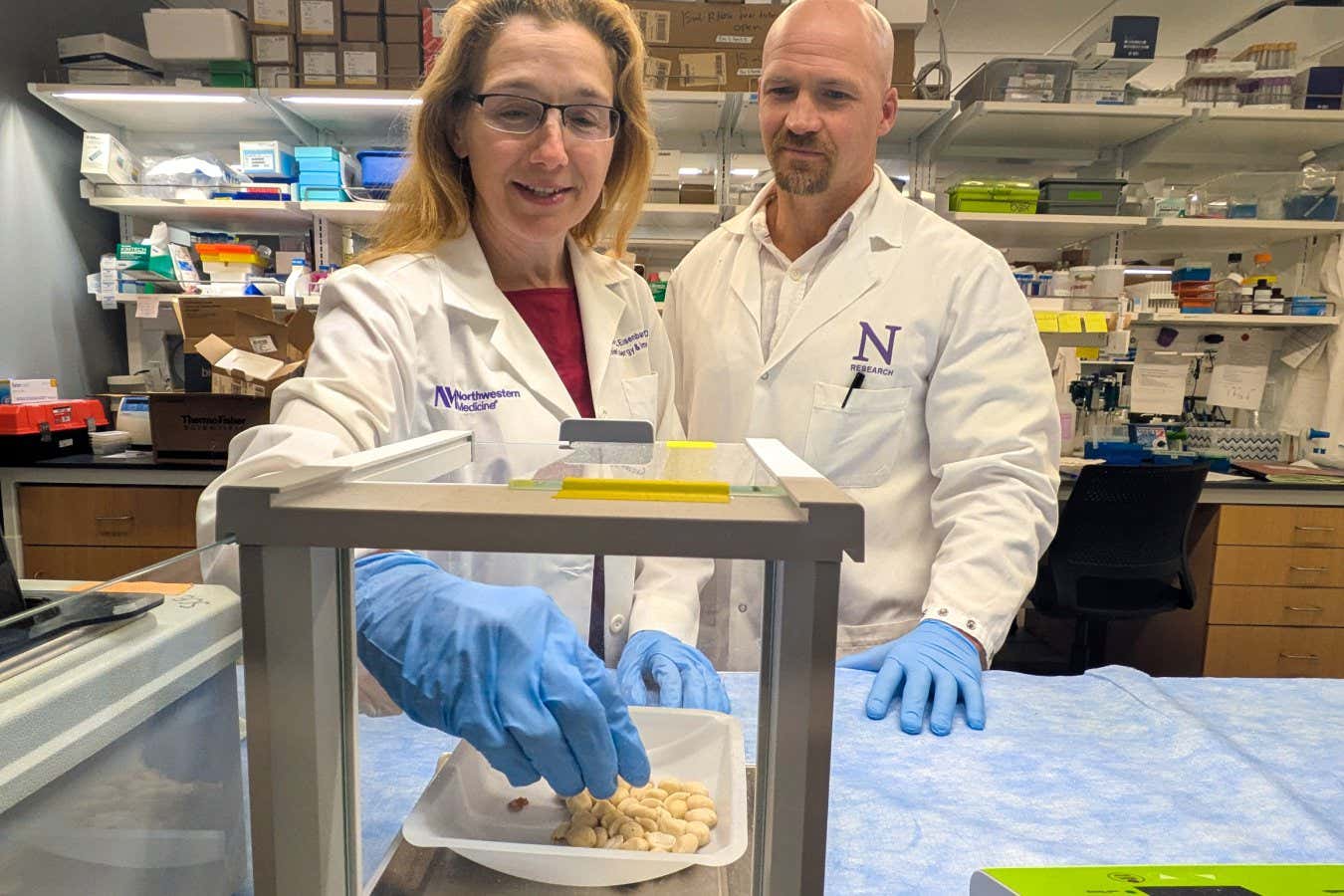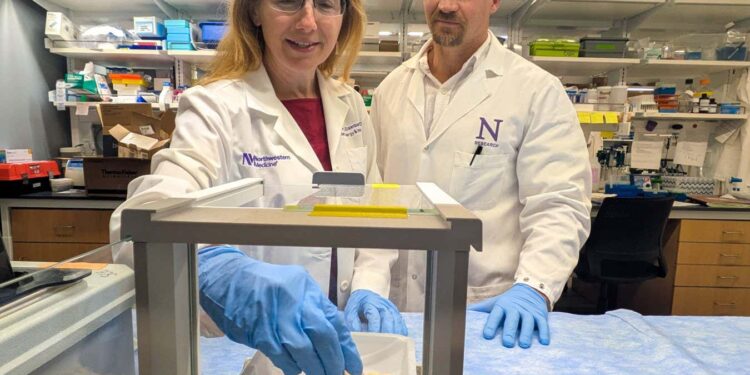
Stephanie Eisenbarth and Adam Williams prepping peanuts for allergy research in their lab
Northwestern University
A common asthma medication has been shown to shield mice from anaphylaxis – a potentially fatal allergic reaction. The drug, called zileuton, has long been used to treat asthma and is now being trialled in humans as a possible treatment for severe allergic reactions to food.
Although many people have food allergies, it is difficult to predict an individual’s risk of anaphylaxis upon exposure to an allergen. Researchers have been working to understand why some people with positive blood tests for food allergens show no symptoms, while others experience severe, sometimes life-threatening reactions.
“Our goal is to find ways to make people with symptomatic food allergy tolerate exposure to allergens,” says Stephanie Eisenbarth at Northwestern University in Illinois.
Eisenbarth and her colleagues used groups of five to 10 mice that had been sensitised to peanut allergens such that they were expected to experience anaphylaxis with exposure to peanuts. Each mouse was given a single oral dose of zileuton about an hour before being fed peanut extract. A control group was not given the drug. Then the researchers watched the zileuton-dosed mice for signs of anaphylaxis, such as a drop in body temperature and increased heart rate, and found that nearly every zileuton-treated mouse remained symptom-free. The control group showed clear signs of anaphylaxis.
Most of the proteins we eat are broken down, but a few are actively transported across the gut and into the bloodstream intact. In severely allergic people, these trigger immune cells and cause anaphylaxis.
During an allergic reaction, the body also releases chemicals called leukotrienes. In the mice, the researchers found that leukotrienes control how many intact proteins pass through the gut. They also found that a gene called DPEP1 is involved in regulating the breakdown of leukotrienes.
One of zileuton’s effects is to block 5-lipoxygenase, an enzyme needed to produce leukotrienes. Giving the drug to the mice reduced leukotriene levels, allowing DPEP1 to keep the remaining leukotrienes in check, preventing allergen absorption and stalling anaphylaxis in sensitive mice. A single oral dose of zileuton led to a 95 per cent fall in anaphylaxis rates.
“We could take mice that normally respond to food allergens and make them unresponsive. We are now testing whether the same drug, which is already used clinically for asthma, can reduce allergen absorption in the gut in people with food allergy. If so, this could provide a treatment to prevent anaphylaxis,” says Eisenbarth.
Jorge Emiliano Gómez Medellín at the University of Chicago says this simple pill may provide significant relief from accidental exposure to the allergens. He adds that while zileuton may prevent the absorption of food allergens, it wouldn’t be able to alter a person’s sensitivity to them in the long term.
“Nonetheless, zileuton has the potential to become an important asset in our fight against food allergies,” he says.
Source link : https://www.newscientist.com/article/2491677-common-asthma-drug-could-prevent-life-threatening-allergic-reactions/?utm_campaign=RSS%7CNSNS&utm_source=NSNS&utm_medium=RSS&utm_content=home
Author :
Publish date : 2025-08-07 19:00:00
Copyright for syndicated content belongs to the linked Source.














